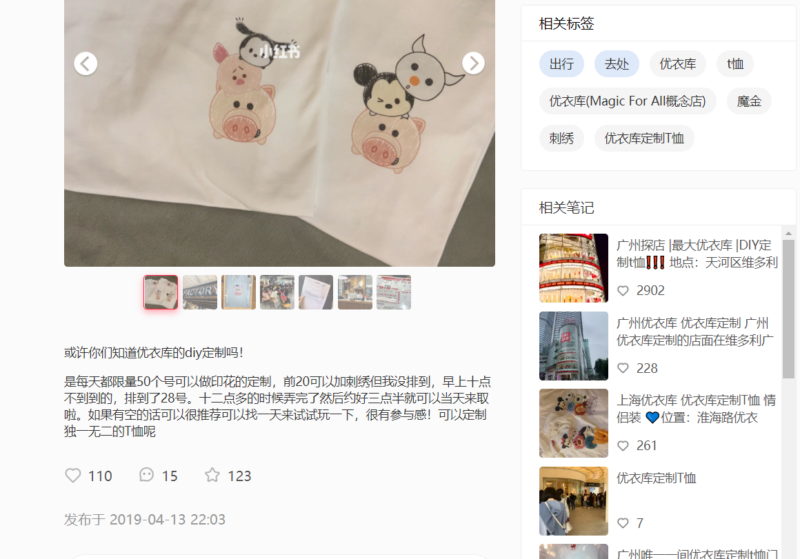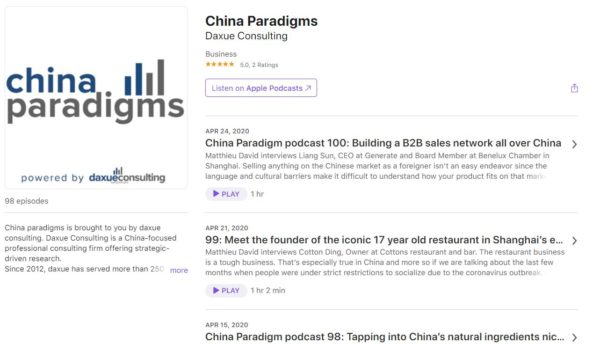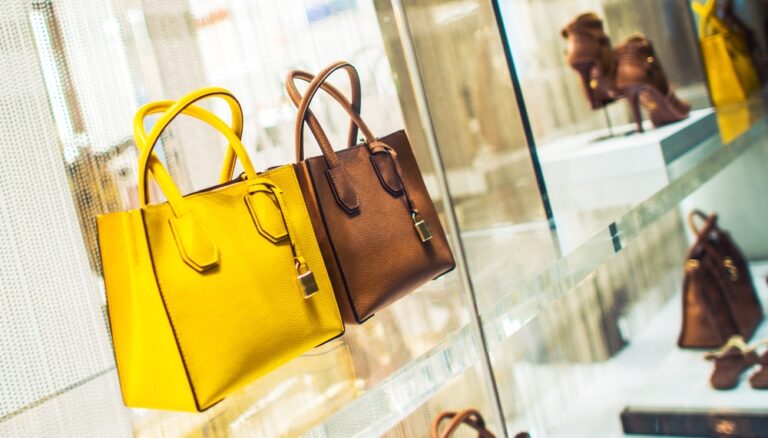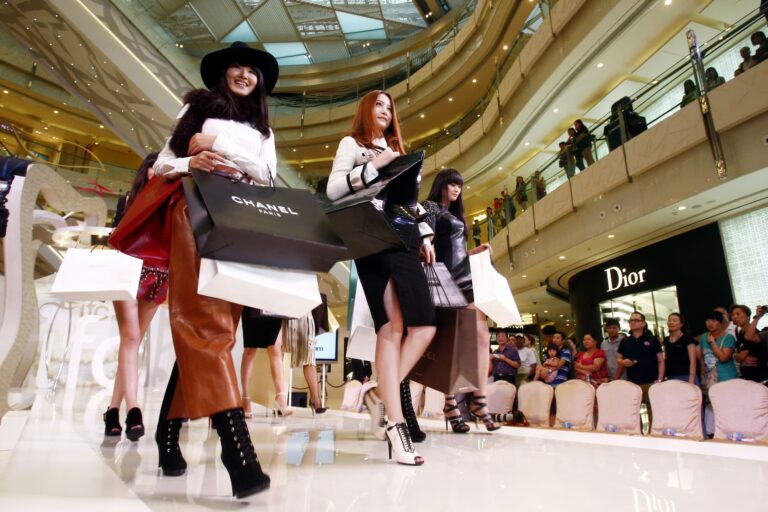China is on the path to becoming the largest luxury market in the world. According to a McKinsey report, China will contribute 40% of the world’s consumption of luxury goods by 2025, and it has already become the biggest market for many luxury brands. At the same time, foreign apparel brands have been expanding rapidly in China. The number of Japanese fast-fashion brand Uniqlo’s stores in China surpassed Japan in August 2020. As the Chinese market has become the most critical market for many, improving service quality is essential to sustain growth.
Some brands have chosen to introduce customization services in China. Many of them have been proven highly successful in answering millennials’ growing demands of showing personality in their outfits. Through customization in China, customers become the “designer” of their own products. Hence, customization and personalization services in China make high-end products even more luxurious and diversify the choices for fast-fashion.
Trends of personalization and customization in China driven by millennials
Personalization and customization has been a global trend since the 2000s. From luxury to fast fashion brands, many players in the markets have attempted to appeal to customers who want to show personality, finding better fits or searching for niche products. However, the Chinese market hadn’t reacted to the trend as other markets in the 2000s since it wasn’t long after the economy took off.
At the time, most of the customers with financial means paid more attention to the brand’s prestige rather than the value of personalization. Besides, most of the brands were still struggling to adapt to this emerging market’s peculiar characteristics, not to mention diversifying their service.
Since the mid-2010s, more and more customers now have the financial means to pay a premium to satisfy their unique taste. The emerging customer group, mostly millennials with a different mindset than their parents, hopes to make a statement through personalized products. According to Luxe’s survey in 2018, personalization and customization have become one of the most sought-after service among Chinese millennials. 20% of the respondents wished that the stores can have designated areas for customization service.
Meanwhile, most brands have been successfully navigating the Chinese market. Becoming aware of the market’s significance, they are more willing to direct resources to introduce additional service to appeal to Chinese customers. Answering customers’ calls, some started to offer customization and personalization service in China.
Mindsets regarding customization in China
Customization generally serves two purposes: satisfying conspicuous consumption and achieving particular features that cannot be provided by usual mass production. On a question on Zhihu asking the benefits of customized clothing, a user answered, “This question is basically stating: ‘the ten thousand benefits of being rich,’” while the other said, “it offers a better fit, and it can demonstrate your personality.”
It’s not difficult to grasp the conflicting attitudes regarding customization in China where enormous inequality still exists. However, contrary to the popular perception of being exclusive, customization services can be provided across many consumer segments. Many want to demonstrate their personality look into more affordable brands for personalization service in China.

Source: CG, Uniqlo UTme customized t-shirts
Regarding the high-end market, according to Deloitte, in 2017 40.6% of the Chinese millennials surveyed were willing to pay a premium for high-end personalized products. Compared to the 71.4% who said ‘Yes’ in the US, personalized high-end products’ appeal to Chinese customers is not as significant. However, the 38.5% who said ‘maybe’ shows room for growth of customization in China. The brands can use marketing and provide better and affordable customizations to attract those willing to try the experience.
Brands popular on Xiaohongshu can significantly benefit from offering customization in China due to this popular app’s nature. The user community is keen to share their experience and KOLs should not be overlooked, and even ordinary users’ posts get noticed by other users. For brands that intend to offer apparel customization in China, it is the right place for marketing. Its users overlap those customers who are more likely to purchase customized products, whether from luxury brands or fast fashion. They are also more likely to share the experience online to create hype within their community.
Designer brands: Louis Vuitton’s customization manifesting the brand’s value
The luxury industry has a long tradition of offering customization service to customers who seek a premium and personalized experience. Most well-known luxury brands, such as Louis Vuitton, Burberry, and Gucci, offer customization service in China. Through customization, their high-value customers can enjoy the sense of exclusivity within the brands’ already-exclusive clubs.
Louis Vuitton, for example, offers a wide range of options of customization in China. From their website, customers can purchase bags with initials hot stamped on the luggage tag or choose from more than sixty labels to place on “MY LV WORLD TOUR” bags. In the stores, shoppers can choose the materials and colours of some products or even design highly customized products through “MY CREATION” service.
While giving customers freedom, personalization connects the products to brands more intimately. Most of the labels provided for the “MY LV WORLD TOUR” line have subtle connections with the brand. For example, the Loui Vuitton logo and their classic flower motif are interestingly embedded in the constellation cartoon designs.

Source: Louis Vuitton, Labels provided for its customization service in China
Fast Fashion: how customers lines up to get customized Uniqlo T-shirt
Uniqlo introduced its limited t-shirt customization service, “UTme!” in some of its larger stores in 2018. The service has attracted a lot of attention. Their strategy of having a small quota per day creates a sense of exclusivity; many have to wait in line early in the morning before the store opens. On Xiaohongshu, hundreds of users shared their customization experience at Uniqlo. Many users felt engaged and considered it interesting.

Source: Xiaohongshu, Posts about Uniqlo’s customization experience
Zara also introduced the “Edited” line in China for customization in 2019 where cCustomers could embroider characters on products like jeans, sweaters and tote bags without paying extra. However, the degree of customization is limited compared to Uniqlo’s and the service didn’t attract as much attention.
WeChat Mini Programs: the perfect platform for customization services in China
WeChat Mini Programs offer a lot of advantages as a platform for customization services in China. Because of the ubiquity of WeChat, using WeChat Mini Program makes the process simpler for both the brands and the customers. The integration between WeChat’s mini-program and its other features allows the brands to add customization into their WeChat ecosystem. Brands can integrate the Mini Program to their official account; customers can share Mini Programs on Moments.
Brands can reach more customers through their WeChat Mini Program, while the customers will have a better customization experience if the Mini Program is well-made. They can customize products directly or make appointments for the service through the Mini Program and pay for it by WeChat Pay. Throughout the experience, the user doesn’t even have to leave the app to complete the purchase.
Besides, the equipment for various customization services can be expansive and take up a lot of space. It is not practical for many brands to provide customization service in many stores. WeChat Mini Programs can aggregate those demands, so equipment doesn’t have to be deployed across their stores.
Successes of leveraging WeChat ecosystem’s advantages
The French brand, Longchamp, introduced the first customization WeChat mini program for luxury brands in 2017. On WeChat, a customer can easily give its classic “Le Pliage” bag some personal touch by choosing the colours of each part of the bag and hot stamp patterns and initials.
Many other brands use Mini Program for special campaigns because WeChat helps the brands to reach customers rapidly. During the Chinese Valentine’s Day, Qixi festival in 2018, American designer brand Calvin Klein introduced a Mini Program to allow customers to choose patterns to print on the undergarment. The campaign was highly successful, for the comment rate for its WeChat Moment ads was 50% higher than the average of the industry.

Source: Calvin Klein, Undergarment customization campaign
Some brands even utilize the integration between the mini program and the whole WeChat ecosystem to introduce creative campaigns. Danish jewelry brand Pandora created the Mini Program “E jian lian ai” before the 2020 Qixi festival. Through the mini program, users could purchase customized gifts and add personalized messages for their WeChat friends. The receivers would redeem the gift and receive personalized messages through the link to the Mini Program. They would then choose the size and enter their addresses to receive the gifts. Thus, the senders didn’t have to know the wrist size or the address to send the gift to their loved ones.

Source: Pandora, “E jian lian ai” WeChat mini-programs customization campaign
What brands should know about customization in China
- Most Chinese consumer missed the initial global wave of customization in the early 2000’s. However, they now have the financial means to purchase customized items.
- Based on social listening, some consumers see customization as lavish and unnecessary, while many see it as a fun way to have more personalized items and connect closer with a brand. Customization is no longer just for the wealthy, there are many opportunities across all industries.
- WeChat mini-programs are a key platform for customization in China, as it allows brands to design their own store, and allows customers to easily share their customizations.
Title image source: Louis Vuitton, Personalized luggage tag
Learn something new? Stay updated on the Chinese market by following our WeChat, scan the QR code below, or subscribe to our newsletter

Learn more about China’s digital ecosystem, see our report on WeChat mini-programs
Listen to over 100 China entrepreneur stories on China Paradigms, the China business podcast
Listen to China Paradigm on Apple Podcast






